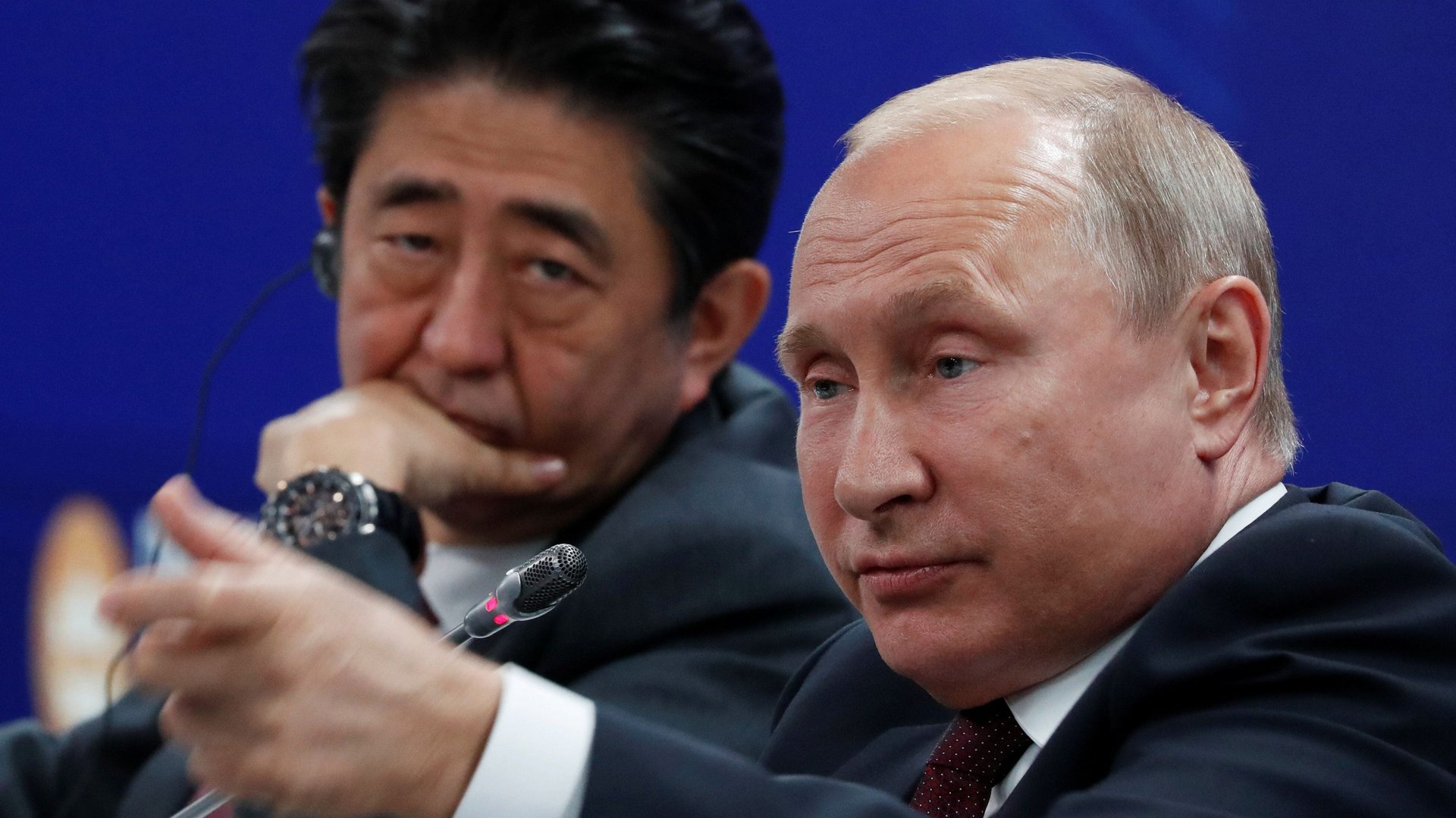Japan says no to Russia’s surprise offer of a peace treaty
For more than 70 years, Russia and Japan have been at loggerheads over far-flung Pacific islands on the edge of the Sea of Okhostk. The Kuril islands are home to 20,000 people, living along 13km (8 miles) of paved roads. One ferry a week connects them to Sakhalin, a larger Russian island.


For more than 70 years, Russia and Japan have been at loggerheads over far-flung Pacific islands on the edge of the Sea of Okhostk. The Kuril islands are home to 20,000 people, living along 13km (8 miles) of paved roads. One ferry a week connects them to Sakhalin, a larger Russian island.
Japan would like to reclaim these islands, which they call the Northern Territories and believe to be illegally occupied. Russia, which took possession of them under Stalin in the mid-1940s, has no particular plans to give them back.
The islands stand in the way of a possible peace treaty to resolve lingering World War II hostilities between the two countries. On Wednesday, on a conference stage in Vladivostok, Russian president Vladimir Putin turned to Japanese prime minister Shinzo Abe and offered him a peace treaty “before the end of the year, without any preconditions.” Abe did not respond, even after Putin added: “I was not joking.”
Later, in Tokyo, Japanese chief cabinet secretary Yoshihide Suga officially rejected the offer, saying that though the two leaders had had “frank talks” at a number of summits, “there is absolutely no change to our country’s perspective of resolving the problem of rights over the Northern Territories before sealing a peace treaty.” Since Abe came to power in 2012, he and Putin have met 22 times over the islands, with little apparent progress.
In this latest overture, Putin may have been attempting to capitalize on Abe’s growing desire for an agreement between the two countries—especially as China continues to boom. But the resource-rich islands, and the painful memories they represent, appear too significant to Japan to be so easily passed over.